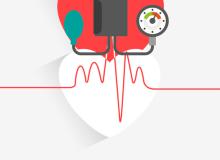In the process of daily blood glucose testing, many diabetic patients always feel that they do not have symptoms or do not feel uncomfortable so they do not need to perform blood glucose testing. This is a very random mentality. So, does blood sugar completely match how you feel? Let’s take a look at the body’s reactions under different blood sugar levels:
1. Blood sugar level: normal. Self-feeling: Asymptomatic. Changes in your body: No symptoms.
2. Blood sugar level: slightly higher than normal. Self-feeling: Asymptomatic. Changes in your body: Damage to cells and blood vessels.
3. Blood sugar level: much higher than normal. How you feel: You may not feel the mild symptoms of high blood sugar. You may feel tired and irritable. You might attribute these symptoms to things like "age" or "stress." What happens to your body: There will be more damage. Eye, kidney and nerve damage may develop within a few years.
4. Blood sugar level: very high. Self-perception: More obvious symptoms. Frequent urination and getting up to urinate at night. You will feel very tired and moody, and your family may think you are "menopausal" or "depressed." Changes in your body: Serious complications, shortened life. Because "sugar friends" have different individual situations and different self-perceptions, in many cases, the blood sugar level is not completely consistent with their self-perception. If you only rely on your feelings without regular blood sugar testing, your blood sugar status can easily be misunderstood. Neglect and lose effective control.
In addition, due to individual differences and poor organ tolerance and insensitivity to hypoglycemia, hypoglycemia is often discovered only when hypoglycemia is very severe or cerebral hypoxia worsens, so it is easy to be misdiagnosed and miss opportunities for treatment.

